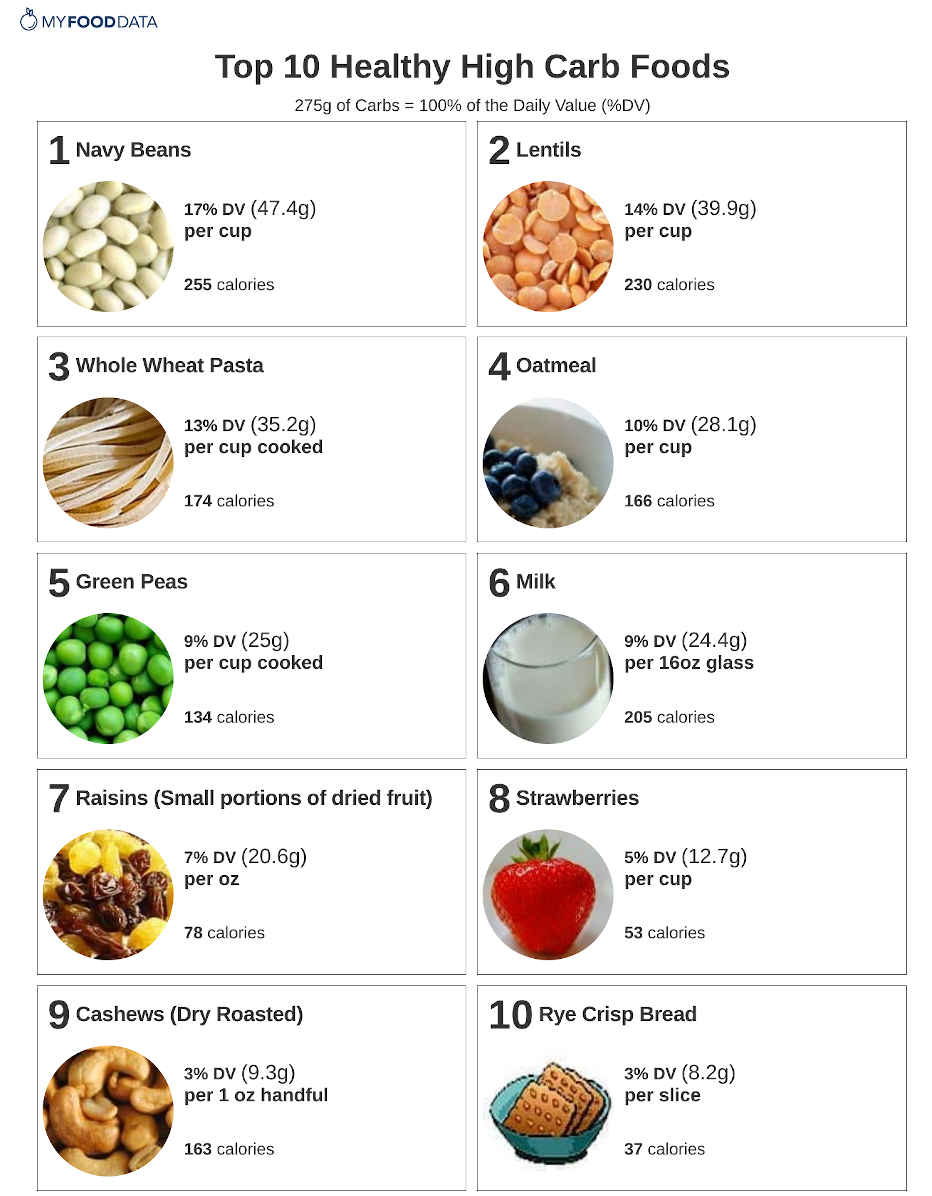Index Surge: Amplifying Your Insights
Stay updated with the latest trends and news across various industries.
High Carbs, Great Vibes: Fueling Your Life with Energy
Discover the energy boost you need! High Carbs, Great Vibes explores delicious ways to fuel your life and elevate your mood. Join the fun!
The Science Behind Carbs: How They Fuel Your Energy and Mood
Carbohydrates are often painted as dietary villains, but they play a crucial role in fueling our energy levels and impacting our mood. When consumed, carbs are broken down into glucose, the body's primary source of energy. This process begins in the mouth and continues in the digestive tract, where enzymes help convert these complex molecules into simpler sugars. As glucose enters the bloodstream, it alerts the pancreas to release insulin, which aids in transporting glucose to cells where it is utilized for energy. Notably, the type of carbs you consume matters; complex carbohydrates found in whole grains, vegetables, and legumes provide a steady release of energy, helping to avoid the spikes and crashes associated with simple sugars.
Moreover, the connection between carbohydrates and mood regulation cannot be overlooked. The intake of carbs stimulates the production of serotonin, a neurotransmitter often referred to as the 'feel-good hormone.' Increased levels of serotonin promote feelings of well-being and happiness. Research suggests that diets low in carbs can lead to irritability and mood swings, largely due to insufficient serotonin levels. Therefore, including the right types of carbohydrates in your diet is essential not just for physical energy, but also for emotional balance. Aim to consume a variety of healthy carbs consistently, prioritizing sources like fruits, vegetables, and whole grains to maintain optimal energy and mood stability.

10 High-Carb Foods to Boost Your Energy Levels Throughout the Day
If you often find yourself experiencing energy slumps throughout the day, incorporating high-carb foods into your diet can help provide the necessary fuel to keep you going. Here are 10 high-carb foods that can boost your energy levels:
- Oats: A fantastic breakfast option, oats are rich in complex carbohydrates that provide sustained energy release.
- Bananas: Packed with natural sugars and fiber, bananas are perfect for a quick energy boost.
- Sweet Potatoes: These nutrient-dense tubers are loaded with carbohydrates and can be easily prepared in various dishes.
- Brown Rice: A whole grain that offers lasting energy, brown rice is a great base for meals.
- Quinoa: A protein-packed grain that is also high in carbs, quinoa is excellent for a filling meal.
- Whole Grain Bread: Opt for whole grain toast for a hearty start to your day.
- Pasta: Opt for whole wheat varieties to enjoy the energy-boosting benefits of this classic staple.
- Beans: Rich in fiber and protein, beans provide a steady source of energy.
- Fruits: A variety of fruits, including apples and grapes, offer quick energy high in natural sugars.
- Granola: A combination of oats, nuts, and sweeteners, granola can be both a snack and a breakfast choice.
Are Carbs Your Enemy? Debunking Common Myths About Carbohydrates
When it comes to nutrition, few topics spark as much debate as carbohydrates. Many people have been led to believe that all carbs are detrimental to their health, often associating them with weight gain and metabolic issues. However, this perception arises from a misunderstanding of the types of carbohydrates one might consume. In reality, carbohydrates are essential for providing energy, and they come in various forms, from simple sugars to complex starches. The key lies in differentiating between refined carbs, such as white bread and sugary snacks, and whole carbs found in fruits, vegetables, and whole grains, which are packed with nutrients and fiber.
Moreover, it is important to address the myth that eliminating carbohydrates from your diet will lead to long-term weight loss and improved health. While low-carb diets may yield short-term results, they are often unsustainable and can deprive the body of crucial nutrients. The reality is that moderation, rather than elimination, is the best approach. By incorporating a variety of healthy carb sources into your meals, such as legumes, vegetables, and whole grains, you can enjoy a balanced diet that supports both energy levels and overall well-being, making carbs far from your enemy.